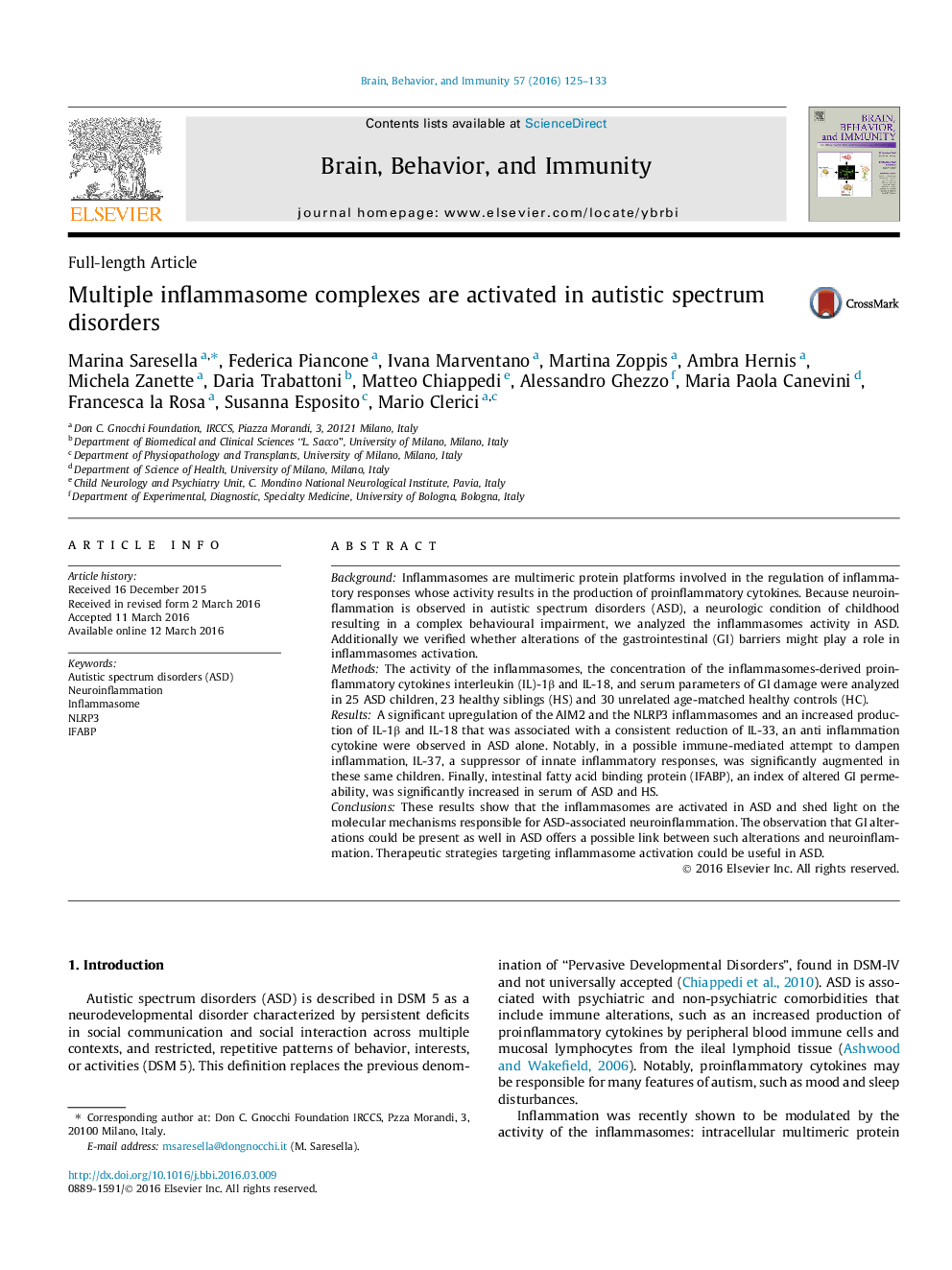| Article ID | Journal | Published Year | Pages | File Type |
|---|---|---|---|---|
| 5041016 | Brain, Behavior, and Immunity | 2016 | 9 Pages |
â¢The AIM2 and NLRP3 inflammasomes are assembled and activated in ASD.â¢Inflammasome activity suggests ASD-associated neuroinflammation.â¢Increased GI tract permeability might be present in ASD.â¢Enterocytes damage could be associated with inflammasome activity.â¢Modulation of inflammasome activity might be beneficial in ASD.
BackgroundInflammasomes are multimeric protein platforms involved in the regulation of inflammatory responses whose activity results in the production of proinflammatory cytokines. Because neuroinflammation is observed in autistic spectrum disorders (ASD), a neurologic condition of childhood resulting in a complex behavioural impairment, we analyzed the inflammasomes activity in ASD. Additionally we verified whether alterations of the gastrointestinal (GI) barriers might play a role in inflammasomes activation.MethodsThe activity of the inflammasomes, the concentration of the inflammasomes-derived proinflammatory cytokines interleukin (IL)-1β and IL-18, and serum parameters of GI damage were analyzed in 25 ASD children, 23 healthy siblings (HS) and 30 unrelated age-matched healthy controls (HC).ResultsA significant upregulation of the AIM2 and the NLRP3 inflammasomes and an increased production of IL-1β and IL-18 that was associated with a consistent reduction of IL-33, an anti inflammation cytokine were observed in ASD alone. Notably, in a possible immune-mediated attempt to dampen inflammation, IL-37, a suppressor of innate inflammatory responses, was significantly augmented in these same children. Finally, intestinal fatty acid binding protein (IFABP), an index of altered GI permeability, was significantly increased in serum of ASD and HS.ConclusionsThese results show that the inflammasomes are activated in ASD and shed light on the molecular mechanisms responsible for ASD-associated neuroinflammation. The observation that GI alterations could be present as well in ASD offers a possible link between such alterations and neuroinflammation. Therapeutic strategies targeting inflammasome activation could be useful in ASD.
